society
NICArb hold 40th Anniversary and 2019 Annual Conference in Lagos
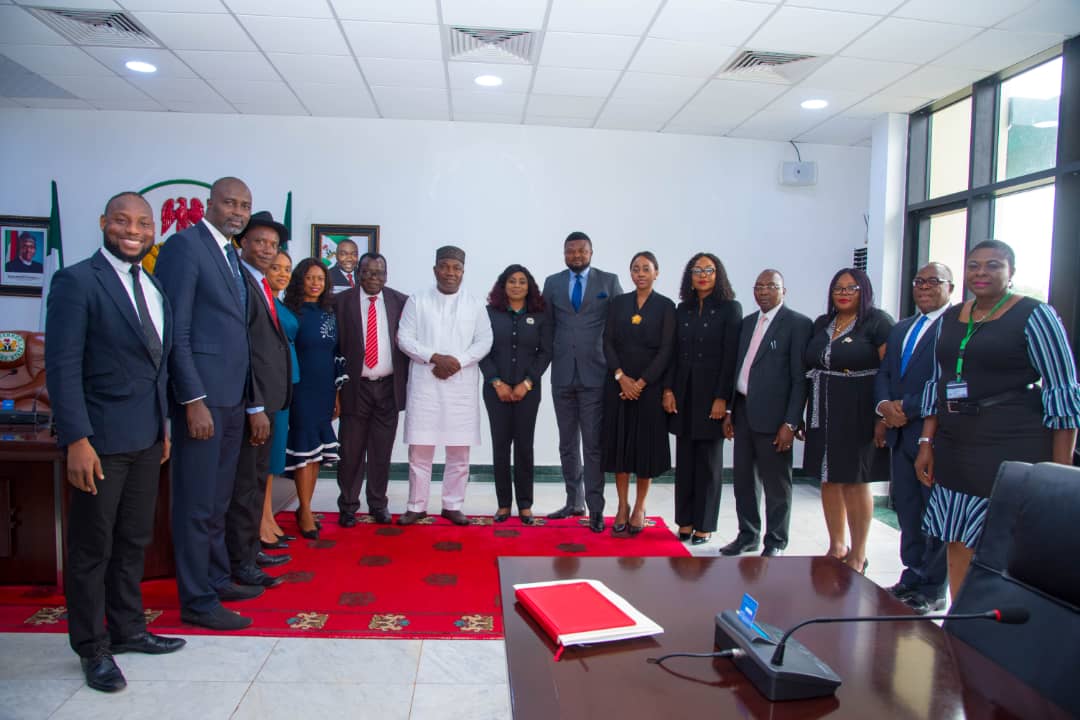
The Nigerian Institute of Chartered Arbitrators (NICArb) held a press conference recently , to address salient issues around its 40th Anniversary theme, titled, ‘Building a Culture of Arbitration and Sustainable Institutions in West Africa’.
The 40th Anniversary Conference and Investiture, which will be held on 14 – 15 November 2019, at the Eko Hotel and Suites, Victoria Island, Lagos, provides a forum for the intellectual discussion of key issues affecting Arbitration in West Africa.
It is focused on yielding practical solutions, necessary to encourage the adoption of Arbitration and Alternative Dispute Resolution (ADR) in the West African sub-region. The conference promises a line-up of renowned regional and global speakers who are experts in the chosen subject areas and will feature panels made-up of technical experts and breakout sessions for intensive exploration of the chosen subject areas.
Also present at the briefing were Management and members of NICArb’s 40th Anniversary and Annual Conference Planning Committee including Mrs. Funmi Obisan, FCArb, Mrs. Clara Umeano FCArb, Mrs. Shola John-Oshodi, FCArb (Registrar/CEO, NICArb), Mrs. Chinyere Onuorah, MCArb (Deputy Registrar NICArb) and Mr. Timi Olagunju (PRO, NICArb).
Mrs. Shola Oshodi-John, the Registrar/CEO of the Institute spoke about Nigeria becoming a Hub for Arbitration, she referenced the institutes previous press briefing emphasizing the need for national policies for strengthening Arbitration in Nigeria as well as calling for partners in the Arbitration/ADR space to join forces with the Institute to implement policies that help Arbitration take a foothold in Nigeria.
The briefing ended with a call to the members of the Arbitration (ADR) community and the general public, to take advantage of this first West Africa regional conference in Lagos, Nigeria, in November. Register on events.nicarb.org
ABOUT THE NIGERIAN INSTITUTE OF CHARTERED ARBITRATORS
The Nigerian Institute of Chartered Arbitrators is the first indigenous body of professional Arbitrators founded in 1979 under the leadership of His Excellency, Justice Bola Ajibola, SAN, KBE and duly incorporated in 1988 under the Companies Act as a legal entity Limited by Guarantee. The Institute was formerly known as the “Chartered Institute of Arbitrators Nigeria” and then later became “Nigerian Institute of Chartered Arbitrators” Ltd/Gte. It is a professional body dedicated to promoting, facilitating and determining of disputes by Arbitration, Mediation, Conciliation and other forms of Alternative Dispute Resolution (ADR) mechanisms.
The Institute is forefront in the development of alternatives to litigation in Nigeria. Besides being at the forefront of promoting the knowledge and practice of Arbitration and other dispute resolution alternatives, the Institute has gained reputation as the preferred appointing authority and Arbitration handling Institution for a broad spectrum of commercial disputants.
The Nigerian Institute of Chartered Arbitrators has over 1,500 members drawn from diverse vocational backgrounds including the Academia, Accounting, Construction, Engineering, Judiciary, Legal, Public Service and a host of others. The Institute has virtually all the greatest jurists of our time as Associates or Fellows. These include former Justices and Judges of the Supreme Court of Nigeria, President Court of Appeal, Chief Judges and Judges of High Courts, Senior Advocates and Retired Judges.
Membership
There are three categories of membership of the Institute:
• Fellows
• Member
• Associates
On the completion of the Institute Training Programme, a successful member/participant becomes a fellow and will be qualified to add the acronym ‘FCArb’ after his/her name. Upon the successful completion of the Member Training Program and active participation in the Institute’s activities, the Associate/participant becomes a Member, and will be qualified to add the acronym ‘MCArb’ after his/her name, whilst a successful participant after the completion of the Institute Associate Training Program becomes an Associate and will be qualified to add the acronym ‘ACArb’ after his/her name.
Our Objectives
The Institute aims to train and develop Arbitrators, promote and facilitate the use of arbitration for dispute resolution.
Its objectives are:
• Promoting and facilitating the settlement of disputes by arbitration and other methods of alternative dispute resolution.
• Improving the standard of skill and expertise of arbitrators and those involved in alternative dispute resolution.
• Promoting the study and practice of arbitration law generally and alternative dispute resolution.
• Providing training and continuous professional development to its members.
• Maintaining and improving the standard of ethics and professional conduct in the arbitration profession and those involved in alternative dispute resolution.
Benefits of membership
• Access to the Institute’s library
• Annual Conference on Arbitration (Arbitration Day)
• Discounts on arbitration seminars and workshops and conferences
• Distribution of Journals to paying members of the Institute
• Inclusion in Faculty database
• Maintenance of a panel of neutrals for arbitration
• Members’ data, for possible appointments for arbitration
• Newsletter of value to members
• Online resource to support arbitration research.
• Opportunity for networking with diverse professionals
Our Activities
The Institute’s focus is in the area of professional training and practical Arbitral and Mediation skills development. This is delivered by means of seminars and workshops for practicing and potential Arbitrators and Mediators. Participants benefit from a range of interactive exercises, cases, class discussions and practical training session of the moot Arbitration to get practical experience on the Arbitral procedure.
Some of its offerings include:
a. Associate Training Programme:
The Associate Training Programme – ATP is for all professionals irrespective of their field of discipline, who intend to practice Arbitration as Associates of the Chartered Institute of Arbitrators Nigeria.
The training program is a three days training that offers guidelines on the emerging trends in Arbitral proceedings and other modern dispute resolution mechanisms. It uses a variety of teaching formats, emphasizes participant participation in the learning process, and provides opportunities for participants to understand the practice of Arbitration and other forms of ADR.
At the end of the program, the participants are assessed through a written examination on the lessons learnt in the classroom.
b. Fast Track Associate Training Programme:
This ‘Fast Track Associate Programme’ – FTAP is a one-day intensive practical training course for very busy executives and top government officials, who intend being part of the Arbitration and ADR world but are not able to take part in the three days training and qualifying examination for Associates.
c. Fast Track Fellowship Training Program:
The ‘Fast Track Fellowship Programme’ – FTFP is a training programme for seasoned professionals who have distinguished themselves in their respective fields and who are interested in practising Arbitration as Fellows of the Nigeria Chartered Institute of Arbitrators. They must also have carved a niche for themselves in the practice of Arbitration and other forms of ADRs. It is a one -day practical training program on Arbitration and other forms of ADRs.
The training program takes participants through the basic principles of arbitration proceedings and other ADRs. It provides them the opportunity to acquire international best practice mechanism as it highlights practice of Arbitration and ADRs in other jurisdictions by giving a comparative study of these practices/procedures.
The programme looks at the intricacies involved in the writing of awards, directions and orders. Topics treated include the emerging forms of Alternative Dispute Resolution, such as Negotiation, Mediation, Conciliation etc.
At the end of the program, assessment of the participants will be done through by a Peer review process.
Before qualifying to participate in this program, candidates are required to submit evidence of having been part of at least two Arbitration or ADR proceedings and/or have written any article or book on Arbitration and other Forms of ADR.
d. The Mediation Programme:
The Institute organises mediation programmes, teaching on the practicality, processes and principles of negotiation and dispute settlement. At the end of the training, the participant becomes a qualified mediator and adds the acronym ‘QMed’ after their name.
e. Continuous Training and Development Program:
Associates and Members benefit from continuous training and development to enable them move to the next cadre of membership. Each category is expected to undergo at least three (3) training sessions in a year to be able to apply and be eligible for the next cadre.
f. Refresher Courses for Fellows:
The Fellow benefit from the continuous training to keep them abreast of the changes in the world of Arbitration. They are expected to participate in a least two of such trainings in a year.
g. Seminars:
The Institute organises seminars, workshops and symposiums to expose practitioners and intending practitioners to the need to promote Alternative Dispute Resolution as well as highlight its commercial and economic benefits to the development of a nation. These programmes are held every quarter in the year.
h. Annual Conference on Arbitration – Arbitration Day:
Through its annual conference, the Institute brings together experts in arbitration and ADRs to discuss national and global trends with an aim to proffering solutions to some challenges in the field. It is held once a year and is open to all professionals.
i. Annual Induction/Award Ceremony:
New members that have met and satisfied the requirement for administration and development of arbitration and ADRs are inducted in a unique and celebrated event, which culminates the Institute’s calendar year.
Governing Council of the Institute
• Aare Afe Babalola OFR, CON, FNIALS, SAN, FCArb- President & Chairman of Council
• Hon. Justice Alfa Belgore, CON, GCON, FNIALS, FCArb
• Dr. Olisa Agbakoba, SAN, FCArb
• Dr. Michael Ajogwu, SAN, FCArb
• Professor Fabian Ajogwu, SAN, FCArb
• Mrs. Clara Umeano, LLM, FCArb Patrons
• Judge Bola Ajibola LLD, SAN, KBE, FCArb.
• Hon. Justice Kayode Eso CON, LLD, FCArb
• Dr. C.A. Atoki, PHD, FCIS, FCArb
society
Viral “Chat With God” Claim Targeting Kenyan Prophet David Owuor Proven False

Viral “Chat With God” Claim Targeting Kenyan Prophet David Owuor Proven False
By George Omagbemi Sylvester, SaharaWeeklyNG
“Viral screenshot sparks national controversy as the Ministry of Repentance and Holiness dismisses fabricated “divine” WhatsApp exchange, raising urgent questions about faith, digital misinformation, and religious accountability in Kenya.”
A sensational social media claim that Kenyan evangelist Prophet Dr. David Owuor displayed a WhatsApp conversation between himself and God has been definitively debunked as misinformation, sparking national debate over digital misinformation, religious authority and faith-based claims in Kenya.
On February 18–19, 2026, an image purporting to show a WhatsApp exchange between a deity and Prophet Owuor circulated widely on Twitter, Facebook, WhatsApp groups and TikTok. The screenshot, allegedly shared during one of his sermons, was interpreted by many as illustrating unprecedented direct communication with the divine delivered through a mainstream messaging platform; a claim that, if true, would have broken new ground in how religious revelation is understood in contemporary society.
However, this narrative quickly unraveled. Owuor’s Ministry of Repentance and Holiness issued an unequivocal public statement calling the image “fabricated, baseless and malicious,” emphasizing that he has never communicated with God through WhatsApp and has not displayed any such digital conversation to congregants. The ministry urged the public and believers to disregard and stop sharing the image.
Independent analysis of the screenshot further undermined its credibility: timestamps in the image were internally inconsistent and the so-called exchange contained chronological impossibilities; clear indicators of digital fabrication rather than an authentic conversation.
This hoax coincides with rising scrutiny of Owuor’s ministry. Earlier in February 2026, national broadcaster TV47 aired an investigative report titled “Divine or Deceptive”, which examined alleged “miracle healing” claims associated with Owuor’s crusades, including assertions of curing HIV and other chronic illnesses. Portions of that investigation suggested some medical documentation linked to followers’ health outcomes were fraudulent or misleading, intensifying debate over the intersection of faith and public health.
Credible faith leaders have weighed in on the broader context. Elias Otieno, chairperson of the National Council of Churches of Kenya (NCCK), recently urged that “no religious leader should replace God or undermine medicine,” affirming a widely accepted Christian understanding that divine healing does not supplant established medical practice. He warned against unverified miracle claims that may endanger lives if believers forego medical treatment.
Renowned communications scholar Professor Pippa Norris has noted that in digital societies, “religious authority is increasingly contested in the public sphere,” and misinformation (intentional or accidental) can quickly erode trust in both religious and secular institutions. Such dynamics underscore the importance of rigorous fact-checking and responsible communication, especially when claims intersect profoundly with personal belief and public well-being.
In sum, the viral WhatsApp chat narrative was not a revelation from the divine but a striking example of how misinformation can exploit reverence for religious figures. Owuor’s swift repudiation of the false claim and broader commentary from established church bodies, underline the ongoing challenge of balancing deeply personal faith experiences with the evidence-based scrutiny necessary in a digitally connected world.
society
HOPE BEYOND THE WALLS 2026: ASSOCIATION OF MODELS SUCCESSFULLY SECURES RELEASE OF AN INMATE, CALLS FOR CONTINUED SUPPORT

HOPE BEYOND THE WALLS 2026: ASSOCIATION OF MODELS SUCCESSFULLY SECURES RELEASE OF AN INMATE, CALLS FOR CONTINUED SUPPORT
The Association of Models (AOMNGO) proudly announces the successful completion of the first edition of Hope Beyond the Walls 2026, a humanitarian initiative dedicated to restoring hope and freedom to deserving inmates.
Despite enormous challenges, financial pressure, emotional strain, and operational stress, the organization remained committed to its mission. Through perseverance, faith, and collective support, one inmate has successfully regained freedom a powerful reminder that hope is stronger than circumstance.
This milestone did not come easily.
Behind the scenes were weeks of coordination, advocacy, fundraising, documentation, and intense engagement. There were moments of uncertainty, but the determination to give someone a second chance kept the vision alive.
Today, the Association of Models gives heartfelt appreciation to all partners and sponsors, both locally and internationally, who stood with us mentally, financially, morally, and physically.
Special Recognition and Appreciation To:
Correctional Service Zonal Headquarters Zone A Ikoyi
Esan Dele
Ololade Bakare
Ify
Kweme
Taiwo & Kehinde Solagbade
Segun
Mr David Olayiwola
Mr David Alabi
PPF Zion International
OlasGlam International
Razor
Mr Obinna
Mr Dele Bakare (VOB International)
Tawio Bakare
Kehinde Bakare
Hannah Bakare
Mrs Doyin Adeyemi
Shade Daniel
Mr Seyi United States
Toxan Global Enterprises Prison
Adeleke Otejo
Favour
Yetty Mama
Loko Tobi Jeannette
MOSES OLUWATOSIN OKIKIADE
Moses Okikiade
(Provenience Enterprise)
We also acknowledge the numerous businesses and private supporters whose names may not be individually mentioned but whose contributions were instrumental in achieving this success.
Your generosity made freedom possible.
A CALL TO ACTION
Hope Beyond the Walls is not a one-time event. It is a movement.
There are still many deserving inmates waiting for a second chance individuals who simply need financial assistance, legal support, and advocacy to reunite with their families and rebuild their lives.
The Association of Models is therefore calling on:
Corporate organizations
Local and international sponsors
Philanthropists
Faith-based organizations
Community leaders
Individuals with a heart for impact
to partner with us.
Our vision is clear:
To secure the release of inmates regularly monthly, quarterly, or during special intervention periods through structured support and transparent collaboration.
HOW TO SUPPORT
Interested partners and supporters can reach out via
Social Media: Official Handles Hope In Motion
Donations and sponsorship inquiries are welcome.
Together, we can turn difficult stories into testimonies of restoration.
ABOUT AOMNGO
The Association of Models (AOMNGO) is a humanitarian driven organization committed to advocacy, empowerment, and social impact. Through projects like Hope Beyond the Walls, the organization works tirelessly to restore dignity and create opportunities for individuals seeking a second chance.
“When we come together, walls fall and hope rises.”
For media interviews, partnerships, and sponsorship discussions, please contact the Association of Models directly.
society
SENATOR ADEOLA YAYI REGISTERS 4000 JAMB CANDIDATES
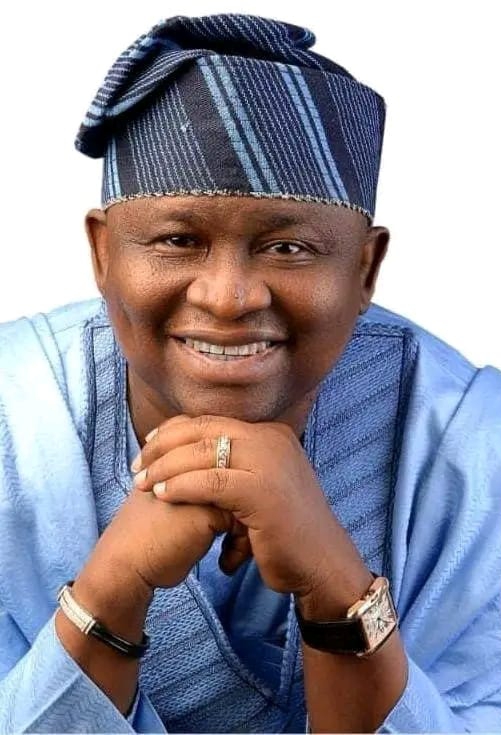
SENATOR ADEOLA YAYI REGISTERS 4000 JAMB CANDIDATES
In continuation of his educational support initiatives and following established tradition, Senator Solomon Adeola (APC,Ogun West) has successfully paid for and enrolled 4000 indigent students for the 2026 Joint Admission Matriculation Board(JAMB) examination.
According to a release e-signed and made available to members of the League of Yewa-Awori Media Practitioners (LOYAMP) by High Chief Kayode Odunaro, Media Adviser to Senator Adeola and shared with (your mediu), the programme financed by the senator under the “SEN YAYI FREE JAMB 2026” ended on Saturday , February 21, 2026, with a total of 4000 candidates successfully enrolled with their PINs provided.
Commenting on the success of the programme, Senator Adeola said the programme is another leg of his personal educational empowerment for indigent but brilliant citizens preparatory to his scholarship and bursary facilitation for tertiary education institutions’ students.
“As far as I can help it, none of our children will miss educational opportunities arising out of adverse economic predicament of their parents or guardians”, he stated.
Successful candidates cut across all the three senatorial districts of Ogun State with 2183 coming from Ogun West, 1358 coming from Ogun Central and 418 from Ogun East.
Some of the candidates that applied and are yet to get their PINs due wrong information supplied in their profiles and being underage as discovered by JAMB and other reasons are being further assisted to see the possibility of getting their PINs.
The Free JAMB programme of the Senator that has been running for years is well received by appreciative beneficiaries and their parents.
Alhaji Suara Adeyemi from Ipokia Local Government whose daughter successfully got her PIN in the programme said the Senator’s gesture was a welcome financial relief for his family at this period after payment of numerous school fees of other siblings of the beneficiary seeking admission to higher institution.
Also posting on the social media handle of the Senator, a beneficiary Mr. Henry Olaitan, from Odeda LGA said that he would have missed doing the entry examination as his guardian cannot afford the fees for himself and two of his children.
-

 celebrity radar - gossips6 months ago
celebrity radar - gossips6 months agoWhy Babangida’s Hilltop Home Became Nigeria’s Political “Mecca”
-

 society6 months ago
society6 months agoPower is a Loan, Not a Possession: The Sacred Duty of Planting People
-

 society5 months ago
society5 months agoReligion: Africa’s Oldest Weapon of Enslavement and the Forgotten Truth
-

 news6 months ago
news6 months agoTHE APPOINTMENT OF WASIU AYINDE BY THE FEDERAL GOVERNMENT AS AN AMBASSADOR SOUNDS EMBARRASSING






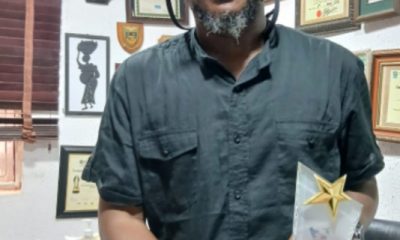

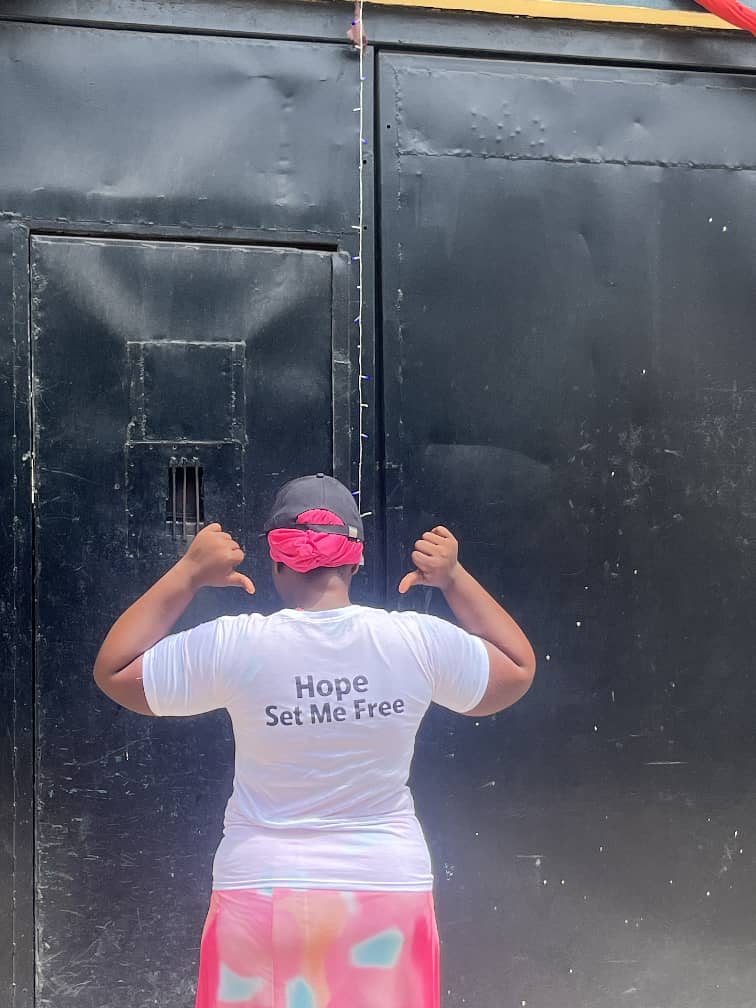
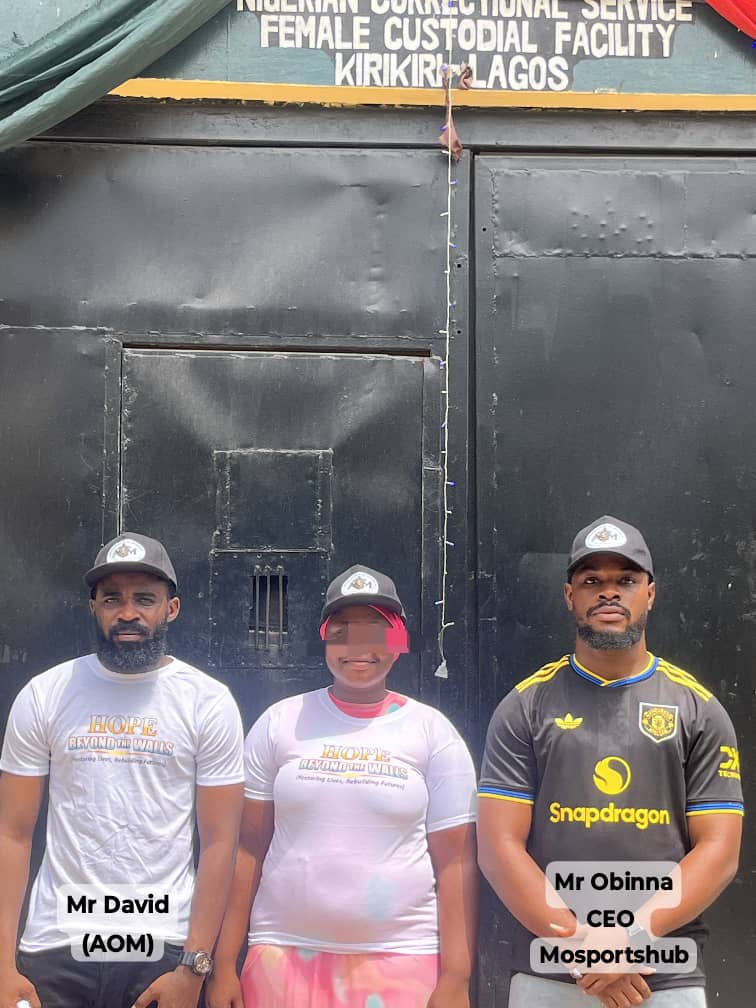
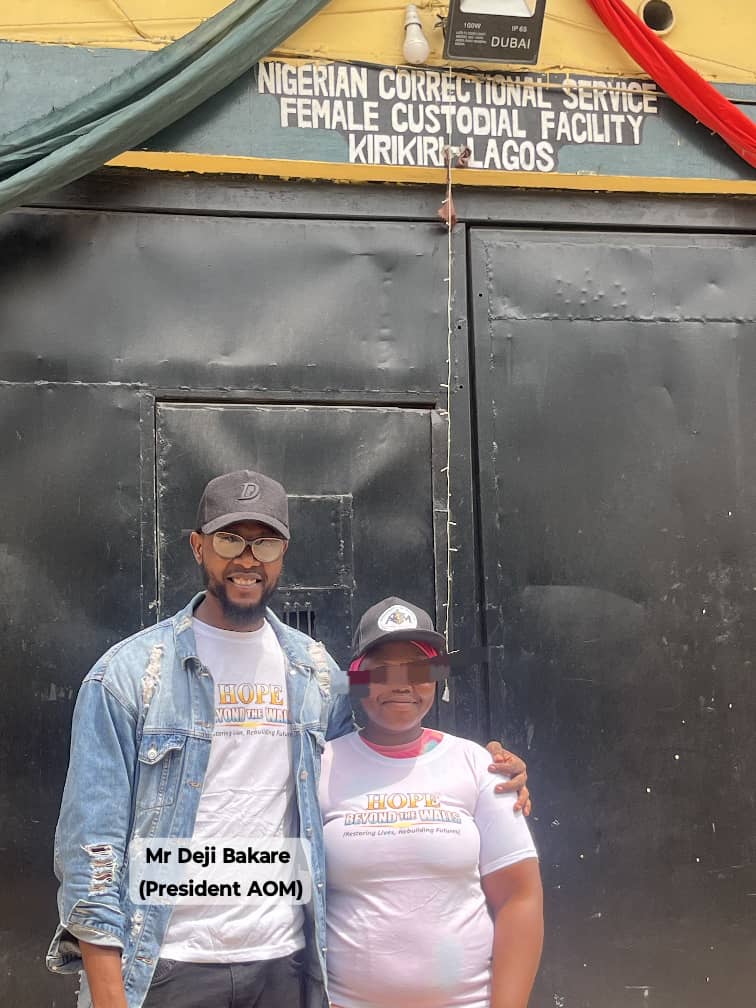
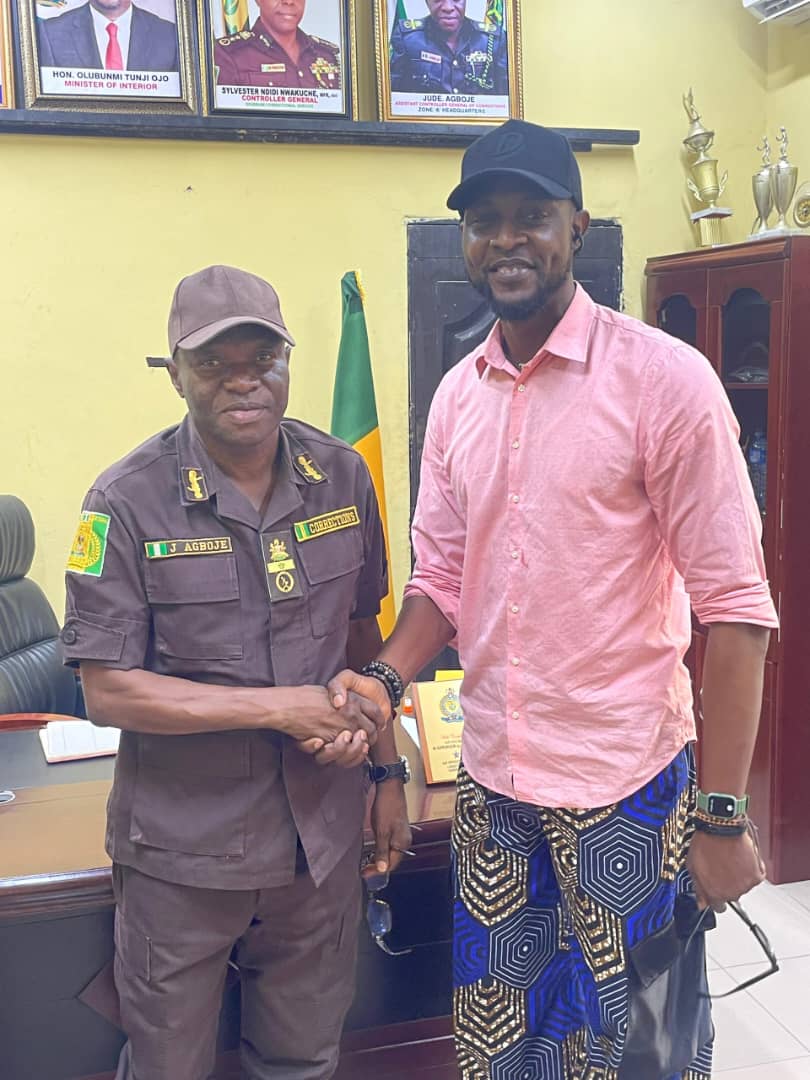

You must be logged in to post a comment Login